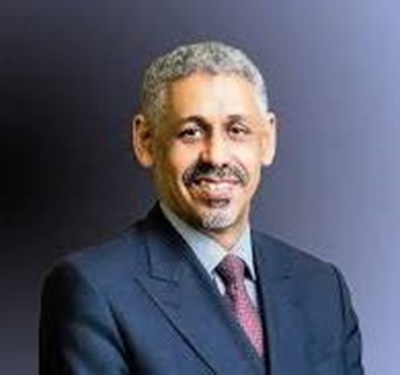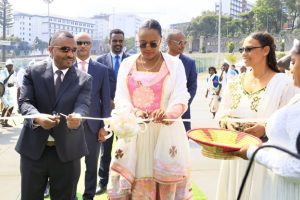
ADDIS ABABA – Sidy Mohamed Tah (PhD) has been elected as the new President of the African Development Bank (AfDB), following a vote by the Bank’s Board of Governors, which includes 81 member states from both regional and non-regional constituencies.
Sidy will officially assume office in September 2025, succeeding the outgoing President, Akinwumi Adesina (PhD) of Nigeria. Akinwumi’s tenure has been widely praised as transformative, and Sidy’s election marks a pivotal moment for the Bank as it navigates a complex global financial environment while reaffirming its commitment to Africa’s economic transformation.
Currently serving as Mauritania’s Minister of Finance, Sidy brings decades of experience in both national and multilateral financial systems. Prior to his ministerial appointment, he was Director General for Economic Development in Africa at the Arab Bank for Economic Development in Africa (BADEA), where he led the design and execution of large-scale development finance strategies across the continent. His background is expected to significantly strengthen his leadership at the AfDB.
Sidy’s appointment has received broad endorsement, underscoring not only his financial acumen but also his diplomatic ability to navigate Africa’s diverse political and economic landscape.
Moussa Faki Mahamat, Chairperson of the African Union Commission, extended his congratulations to Sidy , highlighting the importance of his leadership in advancing Agenda 2063—Africa’s strategic framework for inclusive and sustainable development. He emphasized the AfDB’s central role in this mission, noting that visionary leadership is critical to achieving the continent’s development aspirations.
The unanimous nature of Sidy’s election reflects strong confidence from both African and international stakeholders in his ability to ensure institutional stability while driving innovation and ambitious reforms in development finance.
Sidy takes the helm at a time of significant challenges for the African continent, including climate shocks, conflict-related displacement, youth unemployment, and limited access to infrastructure financing.
As the AfDB continues to support transformative initiatives in energy, agriculture, transport and digital connectivity, his leadership will be closely monitored by governments, investors, and civil society.
Key expectations of his presidency include enhancing the Bank’s capacity to mobilize private investment while ensuring that development financing remains inclusive and equitable. Priorities such as climate finance, green infrastructure, and post-COVID economic recovery are likely to be high on his agenda.
Sidy is expected to build on the legacy of Akinwumi , who championed initiatives such as the “High 5s” development priorities and significantly boosted the Bank’s capital base. However, Sidy is also anticipated to bring his own vision to the role, potentially placing greater emphasis on regional economic integration, strengthening North-South financial partnerships, and increasing resilience in fragile states.
At a time when there is growing momentum for reforming global financial systems to better serve the Global South, Sidy’s leadership could play a pivotal role in shaping Africa’s voice in international economic negotiations.
Sidy Mohamed Tah’s five-year term will run from September 2025 to 2030.
BY MENGISTEAB TESHOME
THE ETHIOPIAN HERALD SATURDAY 31 MAY 2025




